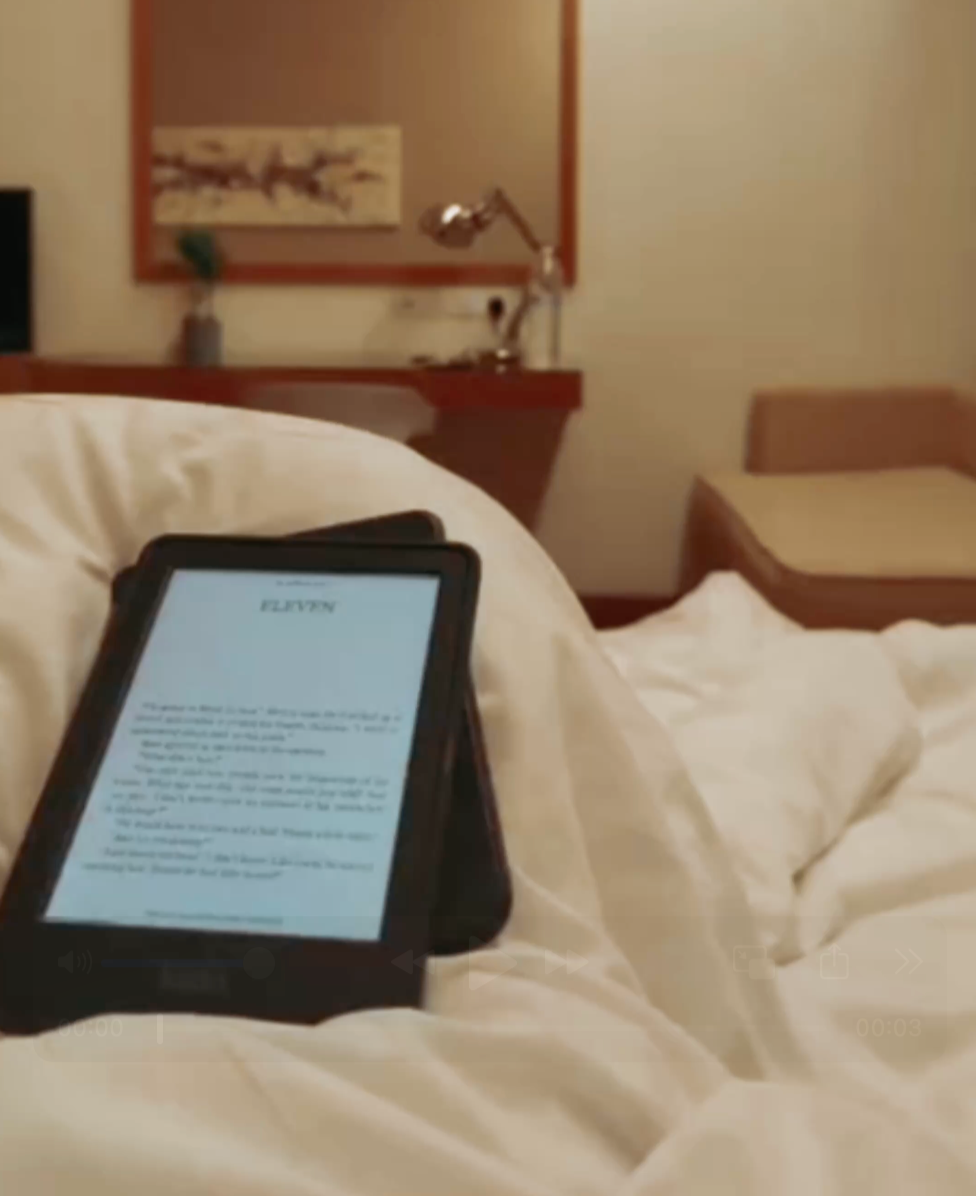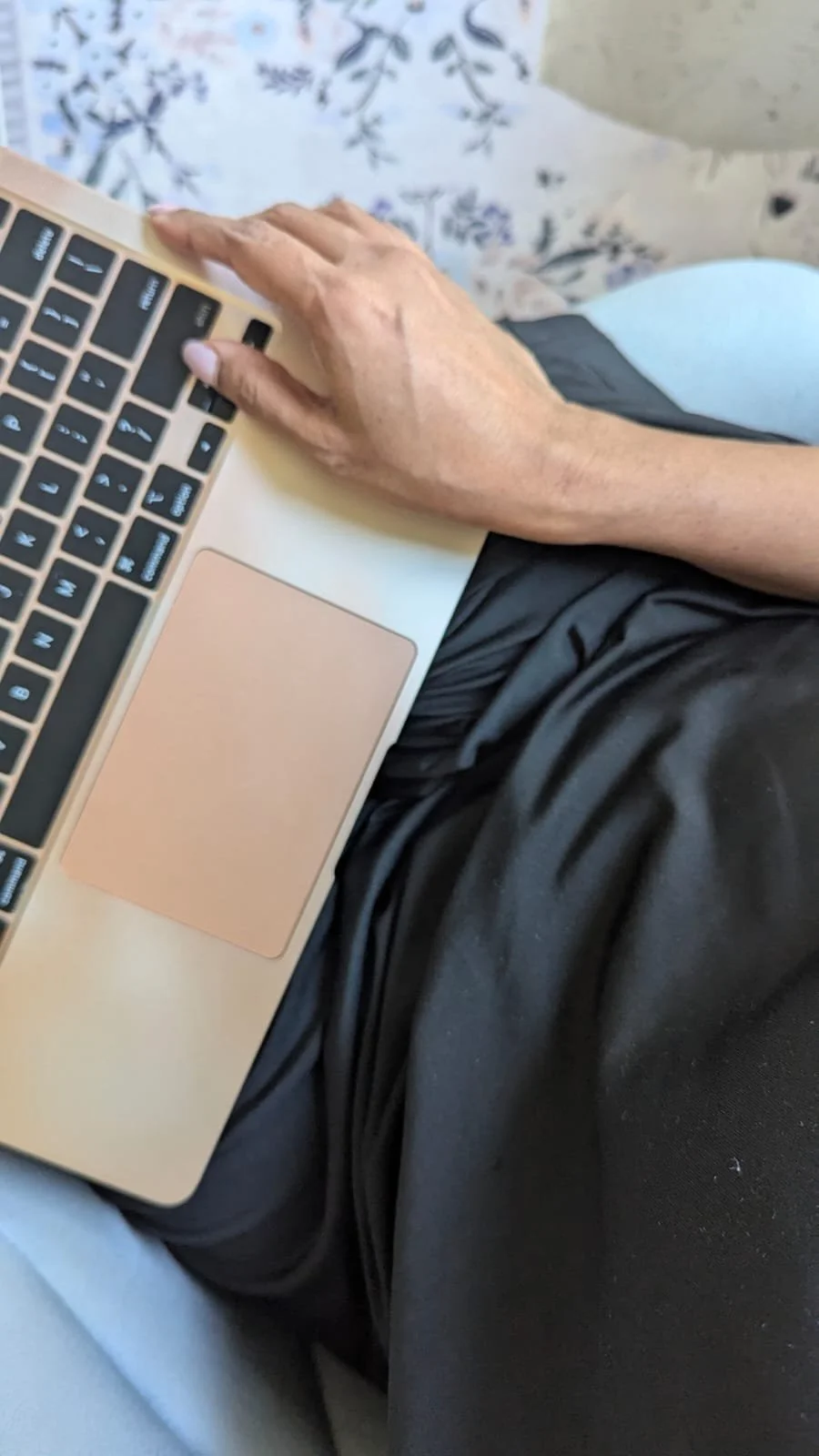The Architecture of Second Acts
It was raining on our last morning in Perth, and we stayed close to home, and we found something worth carrying forward. Which is, I think, what last days are for: not grand farewells but small noticings, the kind that accumulate into meaning, into the particular texture of having been somewhere with someone, paying attention together, sheltering from the rain.
What Fiction Does When We're Not Looking
Maybe the point isn't transfer. Maybe fiction is more like scales on a piano? You're not learning specific songs, you're training the capacity itself. You're practicing the cognitive motion of imagining that someone else's perceptions are real. Whether you then apply that capacity morally is a separate question. Fiction gives you the instrument. It doesn't make you play the right notes.
Threshold: The MRT and the Art of In-Between
I want to say something profound about thresholds. About how we're all suspended between departure and arrival, neither where we were nor where we're going. About liminal space as metaphor for the modern condition. But standing here, sweating slightly despite having spent my entire life in the tropics, what I'm actually thinking about is whether I positioned myself at the right door.
Waves Within Waves: A Meditation on Fractals, Time, and the Strange Comfort of Pattern
Understanding the mathematics doesn't diminish the magic. If anything, it deepens it. To know that you are made of elements forged in the hearts of dying stars, that your body recapitulates four billion years of evolutionary trial and error, that your consciousness emerges from the same physical laws that govern the motion of galaxies and the decay of atoms; this doesn't reduce you. It enlarges you. You are not merely human. You are the universe concentrated into temporary form, awakened to itself for this brief interval. I find something deeply consoling in this recognition of pattern.
On the Fear of Sharing What I Cook
Instagram didn't invent food photography but it professionalised the amateur's kitchen in a way that changed something fundamental. I scroll through feeds where every breakfast looks art-directed. The bowl is ceramic and handmade. The berries are arranged with that precision that might take me ten minutes to get right. The yogurt is Greek and full-fat and from a farmer's market, and you can tell because the caption says so, but casually, like it's not a flex. My yogurt is from NTUC Fairprice. My bowl is from Daiso, eleven years old. The berries are occasionally frozen because I'm not going to the store every two days.
Parenthood Diaries: On Becoming
The Romantics believed in the correspondence between inner and outer nature, the idea that what we feel matches what the world is. But I think there is something more interesting happening here: a correspondence between who we practice being and who we might become. My son has been practicing courage, practicing resilience, practicing a relationship to failure that allows forward motion. And in that practice, he has become someone I did not know to hope for.
I am thinking about what it means to trust another person's unfolding, to resist the urge to reshape them according to cultural templates of success. The negative capability that Keats described (the capacity to dwell in mystery and uncertainty) turns out to be a parental skill as essential as any other.
On Solitude and Self-Possession: What We Learn When We Travel Alone
I am forty-one, sitting in a panificio in Torino with focaccia and cappuccino, and I realise I have never eaten breakfast alone in a foreign city before. In 1934, when Freya Stark was forty-one, she published The Valleys of the Assassins, an account of her solo travels through Persia. In the preface, she wrote something that has stayed with me.
I Hate Love Poems (Mostly)
What I have come to want from poems about love (when I want them at all) is not the architecture of longing but the archaeology of actual connection. Not the moment of falling but the long, unglamorous work of remaining. Not the beloved as muse, mirror, or metaphor, but as the irreducible mystery that another consciousness always is.
The Necessary Interruption: On Adult Gap Years and the Architecture of a Meaningful Life
We do not have a generous vocabulary for such pauses in adult life. We call them sabbaticals if we're lucky, breakdowns if we're honest, unemployment if we're unlucky. What we almost never call them is ‘necessary.’ A word we reserve for childhood education, for sleep, for the predictable milestones of career advancement. But what if the adult gap year, that deliberate stepping out of the current that carries most of us from college graduation to retirement without pause, is not an aberration but a requirement? What if our lives, like fields, need to lie fallow? What if interruption isn't the opposite of accomplishment but its prerequisite?
On Returning
A year ago I stopped teaching journaling workshops because I no longer knew what I was teaching. Now I think I'm beginning to understand, though understanding feels like the wrong word? It's more like recognition, the way you might recognise someone you've been walking beside for years without quite looking at their face.
The Poetry of Transparency: On Visible Veins, Thin Skin, and What We Cannot Hide
Our visible veins represent a kind of involuntary honesty. The body refusing to conceal its inner workings. As Adrienne Rich wrote of "the thing itself and not the myth," our veins are precisely this: evidence that the body, unlike the mind, cannot lie indefinitely. It tells the truth about time, about fragility, about the liquid machinery that keeps us alive.
Consider what else the body reveals without our permission: the flush of emotion rising in our cheeks, tears that spring to our eyes before we can stop them, the way our voice breaks when we speak of something that matters. We are, whether we like it or not, transparent creatures. Our biology insists on honesty even when our psychology does not.











